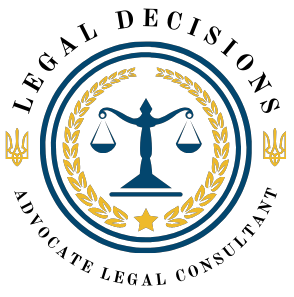Administrative disputes
Appeal against Article 130 of the Code of Commercial Procedure
Bringing people to administrative liability for driving under the influence of alcohol or drugs is a fairly common occurrence. Statistics show that one in three drivers has driven a car while intoxicated at least once in their lives.
In this regard, drawing up reports by the National Police under Article 130 of the Code of Administrative Offenses has become a common practice. But what if the driver did not consume alcohol, but the protocol under Article 130 of the Code of Administrative Offenses was drawn up anyway?
What is meant by appealing the protocol under Article 130 of the Code of Administrative Offenses?
Appealing a protocol in case of an administrative offense under Art. 130 of the Code of Administrative Offenses means a legal process during which the courts of first instance prove the absence of an offense in the driver’s actions.
In other words, the citizen considers himself innocent and appeals the protocol under Art. 130 of the Code of Administrative Offenses, being convinced that the actions of the National Police were illegal.
What is the time limit for appealing a protocol under Article 130 of the Code of Administrative Offenses?
After the National Police officers have drawn up a report on an administrative offense under Article 130 of the Code of Administrative Offenses, it usually takes 3 days to a month before the report is submitted to the court.
After that, the court sets a date for the hearing of the case, where both the person being prosecuted and the representative of the National Police must appear. By this date, it is necessary to familiarize yourself with the case file, prepare written explanations, collect evidence and examine witness testimony.
This is necessary to develop an effective defense strategy before the court hearing.
Consideration of cases under Art. 130 of the Code of Administrative Offenses usually lasts from 1 to 3 months, depending on the workload of the court and the complexity of the case. During this period, a person may prove his or her innocence and request that the proceedings be closed.
Which court should I appeal the protocol under Article 130 of the Code of Administrative Offenses?
Cases related to administrative offenses are considered by district courts of first instance at the place where the protocol was drawn up.
In addition, the National Police officers must indicate in the report which court the materials will be transferred to for consideration and final decision in the case. The citizen signs the protocol on administrative offense and thus receives information on where to appeal the case file under Article 130 of the Code of Administrative Offenses.
How can our company help?
Lawyers from Legal Decisions Law Firm offer a wide range of services to assist clients in cases of administrative offenses
-
Familiarization with the case
Our lawyers will study in detail the materials of the case on an administrative offense.
-
Case analysis
We understand that each case is unique. Therefore, our lawyers will conduct a thorough legal analysis to identify the grounds for appealing the protocol under Art. 130 of the Code of Administrative Offenses.
-
Preparing explanations
Our lawyers will help you prepare written explanations of the case.
-
Collecting and analyzing evidence
We carry out a comprehensive analysis of the facts, collect the necessary evidence to protect the client's interests as effectively as possible. We will collect the necessary evidence to prove the person's innocence and close the proceedings.
-
Protection of interests in court
Our team cooperates effectively with government authorities, and our lawyers will effectively protect the client's interests during the proceedings in court.
-
Representation before law enforcement agencies
We actively protect the client's rights and interests when interacting with law enforcement agencies.
Do you have any questions
Call us now and get answers to all your questions!
+38 050 698-15-21+38 063 803-90-83
